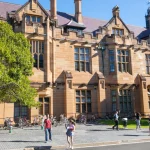- Resilience Redefined: Current events shaping tomorrow alongside insightful news today and proactive strategies.
- The Shifting Global Landscape
- Technological Disruption and Its Consequences
- The Climate Crisis: A Call to Action
- Building Resilient Communities
- The Importance of Financial Security
- Strengthening Healthcare Systems
- Navigating the Information Age
- The Role of Education in a Changing World
- Fostering Global Collaboration
- Looking Ahead: Towards a More Resilient Future
Resilience Redefined: Current events shaping tomorrow alongside insightful news today and proactive strategies.
In a world saturated with information, staying informed about current events is more critical than ever. The rapid pace of change demands that individuals and organizations alike remain vigilant and adaptable. Understanding the complexities of today’s challenges—from geopolitical shifts to technological advancements—is paramount. This article delves into the most pressing matters of the moment, offering insightful perspectives and proactive strategies to navigate an uncertain future, alongside insightful news today and a focus on building resilience.
The Shifting Global Landscape
The international order is undergoing a period of considerable upheaval. Traditional alliances are being tested, and new power dynamics are emerging. Economic interdependencies create both opportunities and vulnerabilities, requiring careful consideration of geopolitical risks. The rise of new technologies, such as artificial intelligence and quantum computing, presents both incredible possibilities and potential threats. Effective policy making demands a nuanced understanding of these shifting sands. It’s crucial to look beyond immediate headlines and analyze the underlying causes and long-term implications of these changes. The evolving situation necessitates a comprehensive response, blending robust diplomacy with strategic foresight.
| Eastern Europe | Geopolitical Instability | Disrupted Supply Chains, Increased Energy Prices |
| Indo-Pacific | Rising Tensions | Increased Military Spending, Trade Disruptions |
| Africa | Climate Change Impacts | Food Security Concerns, Mass Migration |
Technological Disruption and Its Consequences
The relentless march of technology continues to reshape industries and societies. Automation is transforming the nature of work, requiring individuals to acquire new skills and adapt to changing job markets. Artificial intelligence is poised to revolutionize healthcare, finance, and countless other sectors, but it also raises ethical concerns about bias, privacy, and security. Addressing these challenges requires a proactive approach that prioritizes education, innovation, and responsible regulation. Furthermore, investment in digital infrastructure and cybersecurity is vital to protect against emerging threats. A focus on lifelong learning is paramount to ensure that individuals can thrive in a rapidly evolving technological landscape.
The Climate Crisis: A Call to Action
The effects of climate change are no longer a distant threat; they are being felt across the globe. Extreme weather events, such as hurricanes, droughts, and wildfires, are becoming more frequent and intense. Rising sea levels are threatening coastal communities, and disruptions to agricultural systems are jeopardizing food security. Addressing this crisis requires a concerted global effort to reduce greenhouse gas emissions, invest in renewable energy sources, and adapt to the inevitable impacts of climate change. The transition to a sustainable future is not just an environmental imperative; it is also an economic opportunity. Innovation in green technologies can drive growth and create new jobs.
Building Resilient Communities
Resilience—the ability to withstand and recover from adversity—is a critical quality in today’s volatile world. Building resilient communities requires investing in social infrastructure, strengthening local economies, and promoting social cohesion. Access to healthcare, education, and affordable housing are essential components of a resilient society. Fostering a sense of community and encouraging civic engagement can empower individuals to take ownership of their future. Moreover, disaster preparedness and emergency response capabilities are vital to mitigate the impact of shocks and stresses. Collaboration between government, the private sector, and civil society is essential to build truly resilient communities.
The Importance of Financial Security
Financial security is the foundation of individual and family wellbeing. Economic downturns, job losses, and unexpected expenses can quickly derail financial stability. Prudent financial planning, including saving, budgeting, and investing, is essential to build a secure financial future. Access to financial education and counseling can empower individuals to make informed decisions about their money. Protecting vulnerable populations, such as low-income families and retirees, requires robust social safety nets and affordable financial services. Building financial resilience is not just about individual responsibility; it is also about creating a more inclusive and equitable economic system.
Strengthening Healthcare Systems
The COVID-19 pandemic exposed vulnerabilities in healthcare systems around the world. Investing in public health infrastructure, increasing healthcare access, and strengthening disease surveillance capabilities are crucial to prepare for future health crises. Furthermore, addressing health disparities and promoting health equity are essential to ensure that everyone has the opportunity to live a healthy life. The development of new vaccines and treatments relies on continued investment in medical research and innovation. Telemedicine and other digital health technologies can expand access to care and improve health outcomes. A collaborative and interconnected approach to healthcare is vital to protect the health and wellbeing of communities.
Navigating the Information Age
In an era of information overload, discerning truth from falsehood is more challenging than ever. The spread of misinformation and disinformation can undermine trust in institutions, sow division, and even incite violence. Critical thinking skills, media literacy, and fact-checking are essential tools for navigating the information landscape. Supporting independent journalism and promoting responsible social media usage are also vital. Protecting freedom of expression while combating harmful content requires a delicate balance. Building a more informed and engaged citizenry is crucial to preserve democracy and ensure that decisions are based on facts and evidence.
- Develop a strong network of trusted sources.
- Be skeptical of sensational headlines and unverified claims.
- Cross-reference information from multiple sources.
- Consider the source’s bias and motivation.
- Practice critical thinking and question assumptions.
The Role of Education in a Changing World
Education is the cornerstone of a thriving society. Adapting education systems to meet the demands of the 21st century requires a focus on critical thinking, creativity, collaboration, and communication skills. Investing in early childhood education, improving teacher training, and expanding access to higher education are essential. Preparing students for the future of work requires a curriculum that emphasizes STEM (science, technology, engineering, and mathematics) education, as well as digital literacy and entrepreneurial skills. Education should also promote civic engagement, global awareness, and a commitment to lifelong learning.
Fostering Global Collaboration
Addressing the complex challenges facing the world requires international cooperation. Strengthening multilateral institutions, promoting diplomacy, and fostering cross-cultural understanding are essential. Working together on issues such as climate change, pandemic preparedness, and economic stability benefits everyone. Investing in development assistance, supporting human rights, and promoting peaceful conflict resolution are vital to building a more just and equitable world. Global collaboration is not just a moral imperative; it is also a strategic necessity. A unified approach is essential to tackling transnational challenges and creating a more sustainable future.
- Invest in Education
- Promote Innovation
- Strengthen Infrastructure
- Foster Collaboration
- Prioritize Sustainability
Looking Ahead: Towards a More Resilient Future
The challenges we face are significant, but they are not insurmountable. By embracing innovation, fostering collaboration, and prioritizing resilience, we can navigate the uncertainties of today and build a more prosperous and sustainable future. Proactive planning, strategic investments, and a commitment to long-term thinking are essential. Moreover, empowering individuals and communities to take ownership of their destiny is crucial. The ability to adapt, learn, and evolve will be the defining characteristic of successful individuals and societies in the years to come.












